#okay but i love this? internalized shame & crippling self-hatred splintering into various myths over centuries
Explore tagged Tumblr posts
Photo
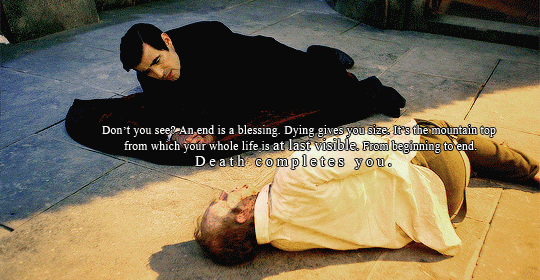

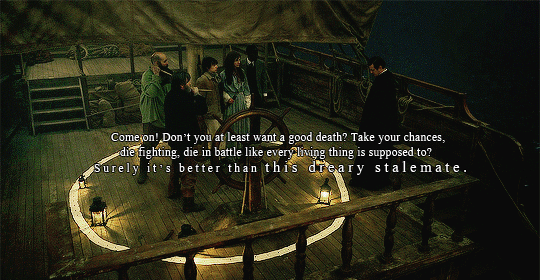
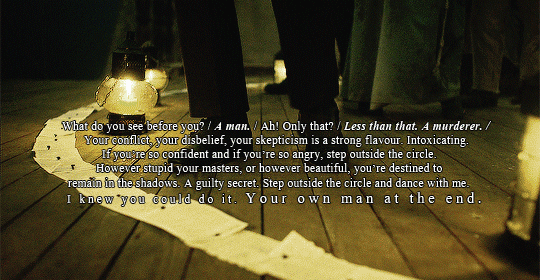
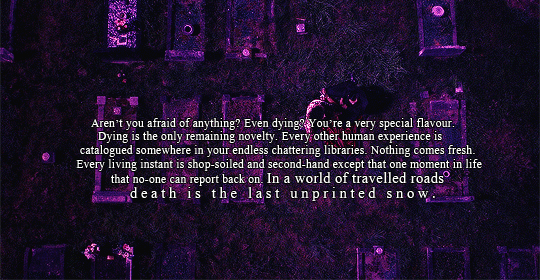
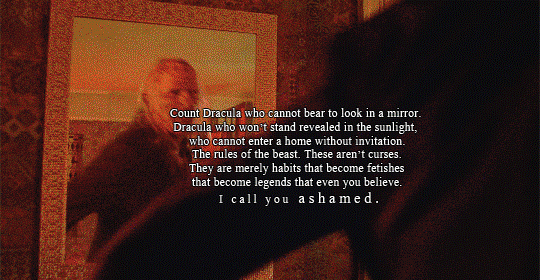
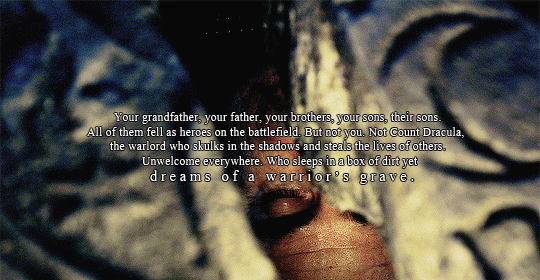
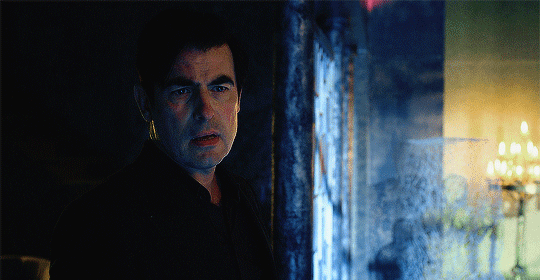
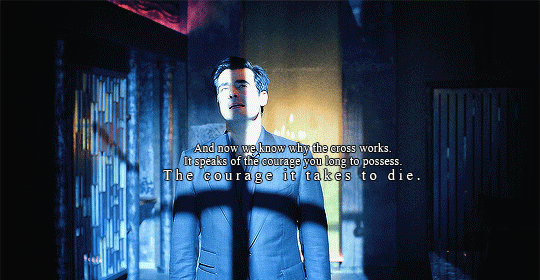

“I want something to eat, a bit of company. || I do sometimes wonder what it is that you actually want.”
The way Claes plays Dracula throughout -- including as an old man -- is that immense power is done as presumption. And the presumption come across as, “I don’t have to take you seriously. I can swat you like a fly anytime I like but for now, you‘re amusing me so let’s just carry on chatting.” And then at a certain point he doesn’t care anymore and just goes, “F**k it.” He’s just not bothering [with pretenses] anymore. That flippancy becomes menacing and sadistic. It’s a demonstration that he really doesn’t regard anybody as a threat. That’s quite difficult to deal with. And if he’s gonna kill you, he’d quite like to have a nice chat with you first. And when that’s done, he’ll snap your neck.
Dracula likes the Duchess. We had to cut it for time but there was a lovely bit where he says he couldn’t bear the idea of her going to England and living on benefits or some such. He didn’t like that idea, he was offended by it. It is sort of sentimental but it doesn’t mean he is kind. He is sentimental in the sense that, as we find out, he has met her before when she was 18 and he killed her mother. And then he finds her again and gives her a good death -- he joins those two things up. To him, in a way, it’s like “Oh, I remember that, it was last week.” but in the intervening time she’s aged 70 years. But he takes her for one last dance. She wouldn’t necessarily agree that’s a good death but in his point of view, there are all these little mayflies around him clinging to their pointless lives far past their value: “What difference does it make if I kill you today or tomorrow. You die anyway.” He has genuine affection and appreciation for all her memories and the life she’s led. So he enjoys her company and then drinks her blood.
At some level, he feels condemned to life but he does attempt to entertain himself all the time and he’s capable of valuing entertainment. For instance, he never just jumps Agatha. At any point. He never does. He could just grab her but he’d rather have a chat first. He seizes any moment of stimulation and interest and excitement. But there are some sort of Groundhog Day things going on. Early stages we talked about, just as a sort of backstory, that maybe Dracula spent a century being good just to see what it’s like. Maybe – because he talks to Harker about it – he tried suicide but it doesn’t work. Maybe he absolutely reached the end thinking, “I can’t do this anymore.” but “oh God, I can’t die.” And then you make the decision to go on but then that must be fueled by something different: “I need more of me.” And then it becomes an obsession, it becomes a mission, and over centuries you forget where you came from. And so you forget that actually the sunlight is fine. It all becomes an armour of shame.
Dracula is obsessed with survival. Lucy is nihilistic. That’s a flavor he’s never really tasted before and he sort of envies the ability to be okay with death, which he isn’t. He certainly finds that flavor seductive but he wasn’t necessarily working out why. It’s Zoe/Agatha -- “Zagatha” as we call her -- who figures out the connection that binds all this together: he knows he is a warlord who’s afraid to die. And that means he is trying to hide from himself. He lives like a scuttling rat. He wouldn’t stand in the sunlight. He wouldn’t look himself in the mirror. He wants to be invited in, he does not wish to be despised. All those dreadful things he’s built around himself that aren’t even true -- they are just in him. These rules and habits become fetishes. He’s forgotten himself and what [the rules are] all about. And in a way, we tried to give this a solution.
Fear of the cross was such a technical one. Dracula knows he is debasing himself to avoid death and there is the symbol of “die for your beliefs” and he can’t. He finds it hard to look at. He watched his own sons die in battle and he couldn’t. It’s a very powerful idea, what that might do to you. This mighty man, this amazing warlord defeated the Turk and did all these amazing things but he got this curse, this contagion, and the only thing he couldn’t do was to die a proper death. He just talks the talk. This is Agatha’s revelation while she is dying herself. He wants to have the courage to die. “Zagatha” says, “You want to defeat death but the only way to defeat death is to face it without fear.” Now that’s unfortunate. The only way to defeat death is to actually die. And that’s what he does at the end. He gets his act together, he goes into battle and he dies.
We were very happy with that as an ending. Dracula is a very hard character to kill but he certainly found a resolution, let’s put it that way. It felt very moving when he was lying across “Zagatha” on the table, drinking her blood. There was a sort of full-stop-ness to “You didn’t think I’d let it hurt, did you?” It was such an iron process of not revealing that that story is happening. I think everyone who watches goes, “Hang on. Those two. Those two, there is something weird there.” But it’s not acknowledged, really, until the very end. And indeed when he says it, “After all this time, did you think I’d let it hurt?”, you know. Of course he wouldn’t. So it’s rather sweet. I like it. He finally does actually bend a little. Claes does a lovely delivery on the line “You’re in pain.” And she says, “I’m equal to it.” But she doesn’t notice that what he says is, “You’re in pain.” He’s aware of somebody else’s pain for the first time as a bad idea. And being aware of somebody else’s pain is surely the gateway drug to morality. It’s not morality itself but it’s just the beginning of “somebody else suffering? I don’t like it. At least I don’t like that person suffering.” We liked that. We are sentimental. Love can redeem anyone.
--- Dracula commentary by Mark Gatiss & Steven Moffat [x] [x] [x]
#bbc dracula#long post#claes bang#dolly wells#mark gatiss#steven moffat#dracula x agatha#mine#okay but i love this? internalized shame & crippling self-hatred splintering into various myths over centuries#w/ dracula being their most steadfast believer#hiding in plain sight#punishing himself to the point of devolving into an amoral predator that can keep going regardless of what it takes to sustain itself#and how it's threaded through all 3 parts#briefly reflected in his conversations w/ others#and culminating in that final confrontation#breaking the 'dreary stalemate' of wanting to part but being afraid to take the leap#where agatha reminds him of his beginnings to usher in the end#which fittingly transitions into a dream#a dream he shares w/ her#'at last visible. from beginning to end'#*full chef's kiss*
158 notes
·
View notes